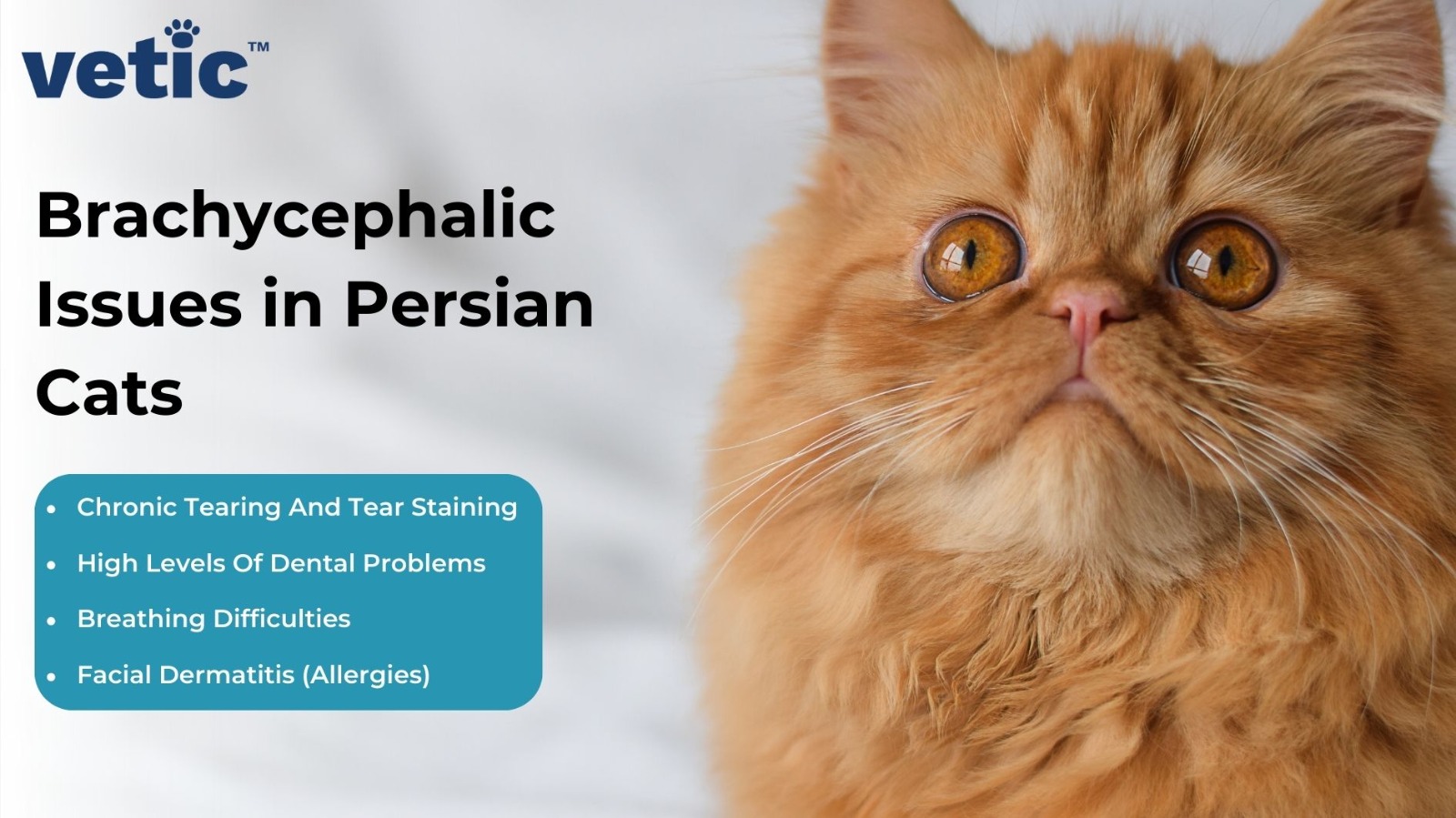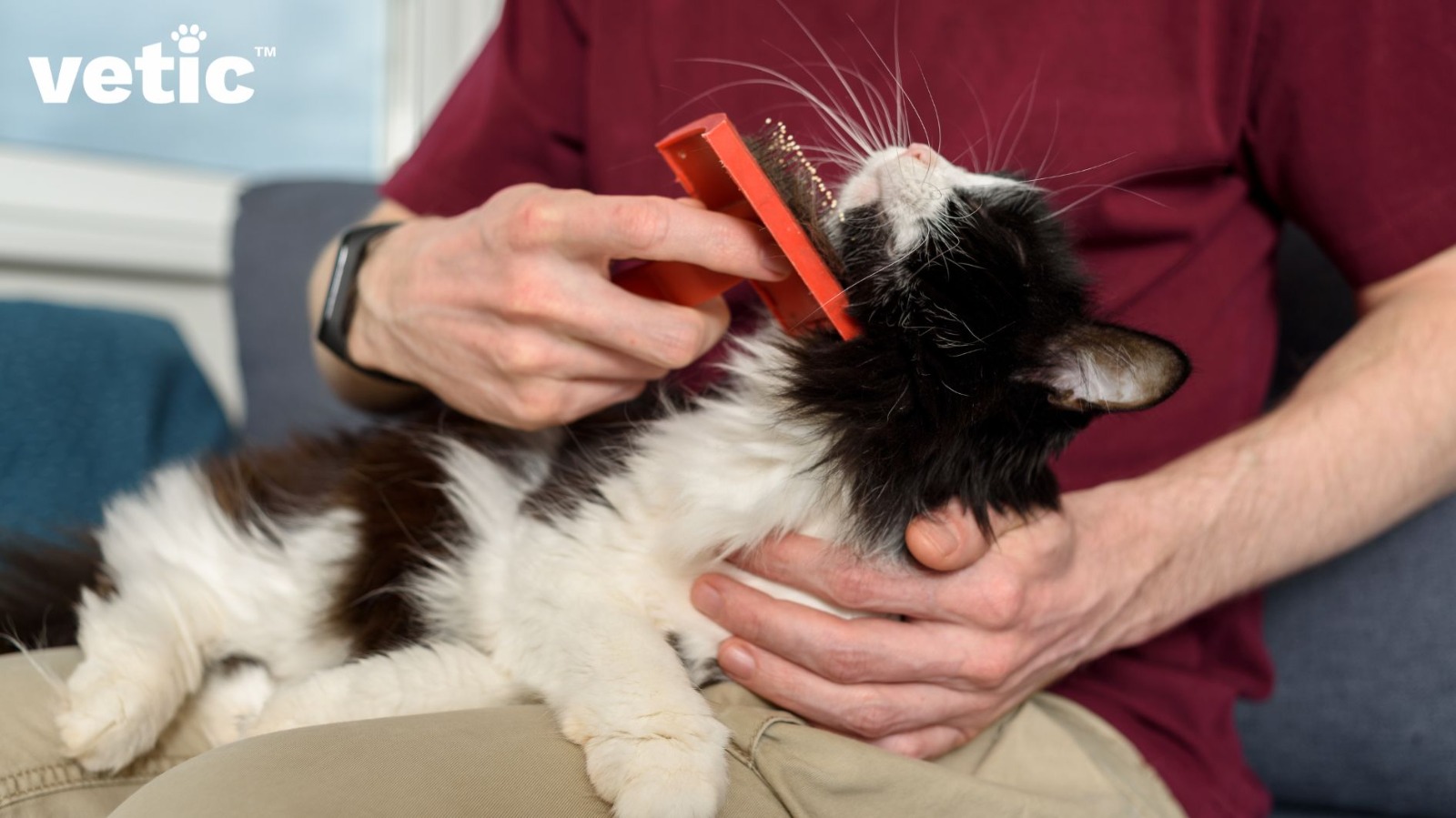Persian Cats are possibly the most popular breed of cats across India and the rest of the world. They have won millions of hearts with their smooshed faces, large eyes and luscious fur. But, do you know how to properly take care of your Persian cat in India?
These extremely sweet, calm and friendly cats have become ever-present in the lives of cat lovers across the globe.
Persian cats demand a little more veterinary care due to their unique facial features and fur coat quality. Regular veterinary visits and grooming sessions are necessary for the health and wellbeing of Persian cats in the Indian climate.
Many cat parents choose the Vetic Pet Clinic in Thane and other locations near them for annual vaccinations and grooming of their Persian furbabies.
Why do you need to clean the face and fur of Persian cat in India regularly?
First, let us understand the distinguishing physical features of the Persian Cat breed. Only then we will be able to gauge why your Persian kitty requires special care to live healthily and happily.
Persian cats in India often face skin issues and breathing issues due to the high humidity, pollution and temperatures.
Persian cats are brachycephalic (flat-faced) with long flowing fur, which poses a double challenge – keeping their facial folds clean and their fur free from knots.

A flat face means multiple skin folds. Not cleaning the face of a Persian cat regularly will cause dirt to accumulate in the folds. Persian cats who do not undergo facial cleaning regularly can experience the following types of discomfort –
- Infections of the skin folds on their face
- Respiratory distress from clogged nostrils (too much dust/allergen)
- Permanent tear stains from constant eye discharge
Not combing their fur daily can lead to multiple problems –
- The knotting of the fur near the belly, armpit and neck regions
- Too much knotting can lead to clumps of fur that create a hard shell of fur around the body
- Excessive grooming that leads to hairball formation in cats
- Skin infections arising from dust, dirt and microbe build-up in the tangled fur
Opting for a regular grooming package can save a lot of money. Hear it from the thousands of pet parents who have chosen Vetic Pet Clinic for the grooming and post-grooming check-up of their Persian cats.
How to groom your Persian cat’s coat?
Introduce daily brushing and combing when they are still kittens. You can always follow up brushing with a Persian-friendly treat.
Positive reinforcement and positive associations work marvellously in training cats.
The first step is finding the right comb that works on the thick Persian cat fur. A dual-toothed steel comb works better than regular cat brushes.
In the case of Persian cats, you need to brush the top coat and the dense undercoat. You can also invest in a sturdy deShedding brush or a slicker-type brush. They can remove the excess loose fur that forms the tangles.
The proper way to brush a Persian’s fur is by working with small areas. Part the fur, start on the outer coat and then go to the undercoat. Always brush in the direction of the fur growth.
Use the slicker or deShedder to remove all excess fur as you move from the head to the tail.
Once done, you can go over your cat’s fur coat with a wide-toothed comb for a smooth finish.
With a Persian, brushing every day should be the norm. If you miss brushing multiple days in a row you should visit a professional grooming clinic that is acquainted with the grooming needs of Persian cats.
How to clean your Persian cat’s face?

You can use a comfortably warm and wet cloth to wipe your Persian’s nose clean every day. It will remove the excess dust and allergen build-up, which often causes Persians to sneeze frequently.
Wipe your cat’s nose at least once a day. And wipe it more frequently if it becomes blocked.
And ALWAYS keep your Persian protected from upper respiratory tract infections (URIs) by vaccinating them on time.
Cleaning their nose and surrounding skin folds is not enough, you also need to clean their tear stains.
Since Persians have large (almost protruding) eyes, their eyes produce tears constantly. The tears keep running to keep their eyes moist and clean, but they overflow and create stains.
Tear stains will turn yellow or brown if you don’t clean their eyes regularly with a soft, moist cloth.
Not cleaning tear stains will also lead to skin infections, irritation and eye problems.
Even with regular cleaning, your Persian will need professional grooming and facial cleaning to prevent permanent staining under the eyes.
Why does your Persian Cat require regular health checkups?
Unfortunately, Persian cats are prone to some of the most complex health issues. Some of them are predisposed to chronic heart conditions such as Hypertrophic cardiomyopathy (HCM), while others develop polycystic kidney disease (PKD).
There is no way to tell which cat will develop any of these complex health issues. There is no prevention of HCM or PKD. You can only opt for regular health checkups that can catch the disease(s) in its very early stages.
HCM is the most common heart disease diagnosed in cats. As many as 1 in 7 cats are diagnosed with HCM each year.
Polycystic Kidney Disease (PKD) is an inherited disorder. While you can’t prevent it, you can gain some idea of your cat’s kidney health by following up on the health of their mother, father and litter siblings. However, again, there is no medicine to prevent PKD. Only ones that can treat it if diagnosed at a very early age and stage.
Summing up: How to properly care for your Persian cat in India?
Regular grooming is a must for all Persian cat parents who live in India.
Ideally, you should begin when you adopt your cat (kitten). Making daily grooming a habit is much easier in kittens than in adult cats.
Here are the 10 care tips for all Persian Cat parents in India –
- Give your Persian a good fur coat brushing every day.
- Don’t forget to clean your cat’s eyes almost daily.
- Brush their teeth too.
- Keep your Persian cat’s ears clean.
- Keep your cat’s litter box tidy and clean.
- Treat your cat to some dental chews and fun toys.
- Give them Persian cat friendly, anti-hairball cat food.
- Keep your Persian cat mentally stimulated.
- Give those claws a little trim when needed.
- Bathe them whenever your vet recommends.
Thankfully, Persian cats are very docile and calm, which makes it easier for pet parents to clean their eyes and skin folds and comb them.
You must take your cat for complete health checkups at least twice a year. Ensure your veterinarian conducts a full physical checkup and recommends blood tests that can signify any abnormalities in your cat’s overall health.
The biggest indicator of illness in cats is their behaviour. However, since Persian cats are anyway calmer as compared to Indie or hairless breed cats, you may not be able to notice a marked difference in their energy levels until the illness becomes too pronounced.
However, if you still face challenges as a first-time pet parent, you should definitely take your cat to a professional cat groomer near you to find out the correct methods of taking care of your cat’s face and fur.
Here are the most frequently asked questions about Persian Cats and their health:
What makes Persian cats unique?
Persian cats are known for their distinctive smooshed faces, large eyes, and long, luxurious fur. They are also cherished for their calm and friendly demeanor, making them popular pets worldwide.
How often should I groom my Persian cat?
Persian cats should ideally be brushed daily to prevent tangles and matting in their fur. Regular grooming sessions also include cleaning their face to avoid tear stains and respiratory discomfort.
What are common health issues in Persian cats?
Persian cats are predisposed to health issues such as brachycephalic airway syndrome, polycystic kidney disease (PKD), and dental problems due to their facial structure. Regular veterinary check-ups are crucial to monitor their health.
How should I clean my Persian cat’s face?
Use a warm, damp cloth to gently wipe your Persian cat’s face daily. This helps remove dirt, allergens, and tear stains that can lead to infections and eye problems if left uncleaned.
Are Persian cats suitable for first-time cat owners?
Yes, Persian cats are generally calm and affectionate, making them suitable for first-time cat owners who are committed to their grooming needs and regular veterinary care.
What should I feed my Persian cat?
Choose high-quality cat food formulated for Persian cats to address their specific dietary needs, such as preventing hairballs. Dental treats and regular brushing can also help maintain their oral health.
How can I keep my Persian cat healthy in India’s climate?
Apart from grooming, ensure your Persian cat stays indoors in a cool, clean environment to minimize exposure to heat and pollutants. Regular vaccinations and preventive health care are essential to their well-being.
